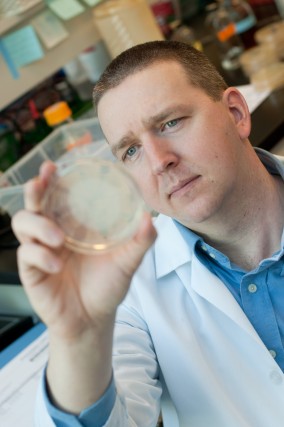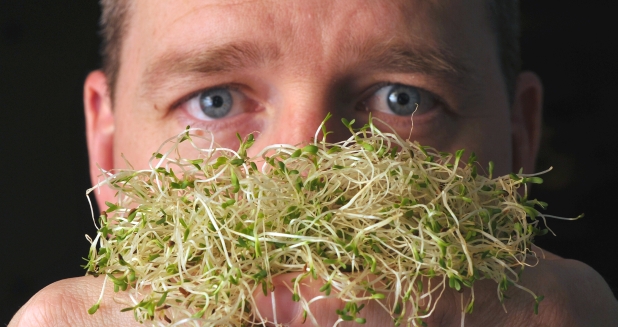Kevin Dr.-Dreamy Allen, (right, sortof as shown) found traces of listeria in ready-to-eat fish products sold in Metro Vancouver, according to this boring University of British Columbia press release.
There’s so much Kevin Dr.-Hockey-Goon Allen material to work with, but UBC went with the boring and predictable.
Allen tested a total of 40 ready-to-eat fish samples prior to their best before date. Purchased from seven large chain stores and 10 small retailers in Metro Vancouver, these products  included lox, smoked tuna, candied salmon and fish jerky.
included lox, smoked tuna, candied salmon and fish jerky.
The findings – published in a recent issue of the journal Food Microbiology – show that listeria was present in 20 per cent of the ready-to-eat fish products. Of these, five per cent had the more virulent variety of Listeria monocytogenes.
Allen says although the Listeria monocytogenes levels in the ready-to-eat fish products met federal guidelines, the bacteria can multiply during handling and storage – particularly toward the end of shelf life.
“Additional handling of ready-to-eat foods in stores, such as slicing, weighing, and packaging, may increase the potential for cross-contamination,” says Allen. “While listeria bacteria can be killed by high heat, most people eat these fish products without further cooking. What this means for consumers is that pregnant women, the elderly and anyone with a compromised immune system should be aware of the health risks.”

 Although it can be unnerving.
Although it can be unnerving. no, I wouldn’t."
no, I wouldn’t."(1).jpg) concentration of bacteria that was below the federal threshold that would have necessitated a recall, but it is still a cause for concern, said Allen.
concentration of bacteria that was below the federal threshold that would have necessitated a recall, but it is still a cause for concern, said Allen..jpg) University of British Columbia food scientist Kevin Allen told the
University of British Columbia food scientist Kevin Allen told the .jpg) eating spinach.”
eating spinach.” I was often the goalie.
I was often the goalie.